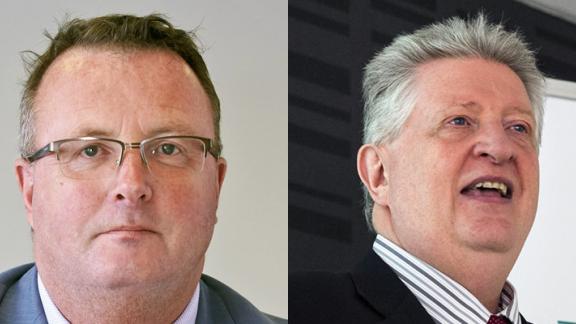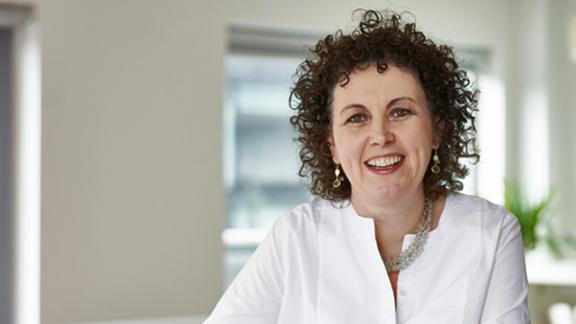Supporting mental health during and after the COVID-19 emergency

There has been a lot of discussion by NHS leaders in the mental health sector and professionals working in mental health services about the impact of COVID-19 on people’s mental health, both during the current crisis and in the longer term Sean Duggan, chief executive of the Mental Health Network and Dr Phil Moore, chair of NHSCC’s Mental Health Commissioners Network elaborate on these concerns.
It is anticipated that there will be an increase in demand for mental health services once we are over the current emergency and we begin to see the effects of the pandemic and lockdown measures on people with existing mental health problems, NHS and social care staff, and the public generally,
As a society we are experiencing bereavement without being able to grieve properly and anxieties about the current situation including money worries, how to manage living in isolation and the loneliness this brings.
For some, lockdown will mean being in lockdown with an abuser – this can take several forms and includes domestic violence and child abuse. We need to be supporting our frontline staff - NHS, social services, police, fire and others – who are encountering tough situations, often not only at work but also in their personal lives.
A second ‘crisis’ in mental health isn’t necessarily inevitable, but how we manage this is of concern to both providers and commissioners alike.
Accessing support
There have been changes in referral patterns to Improving Access to Psychological Therapies (IAPT) programme and children and young people’s mental health services. One crucial message that we need to get out loud and clear is that mental health services are still open for business. The Chief Medical Officer said very strongly at a daily briefing that “if patients have a medical emergency, the NHS is still open for business” and that people should access services if they need to. This includes mental health services. Accessing help and support might look different as services are increasingly delivered by digital means, such as teleconferencing, and services’ capacity to respond to demand may change depending on staff sickness and redeployment to help with the coronavirus response.
NHS England and NHS Improvement has issued guidance about which elements of the NHS Long Term Plan and what services should be put on hold, and interestingly what should be brought forward. Systems have been asked to implement 24/7 mental health crisis care phone lines for all ages as soon as possible. This was previously not due to launch until March 2021. This will help ensure that people experiencing mental health crisis won’t necessarily have to go to A&E, which is helpful in normal circumstances, but is even more important now.
The mental health of frontline workers also needs supporting. It is essential and there are a number of schemes, being put in place and will be needed long after the pandemic.
Multi-sector provision
The provision of mental health services during COVID-19 is still multi-setting and multi-sector. Community mental health services are vital and the role of voluntary and community sector (VCS) and social enterprises in providing mental health support is now more important than ever. The government has announced an additional £5 million of emergency funding for the third sector, which will be administered by the charity Mind guidance has been published on how to apply. Guidance is also available for commissioners and providers about revised arrangements on managing contracts and payments for NHS and non-NHS organisations operating on standard NHS contracts during the COVID-19 pandemic.
Social enterprises, especially those delivering digital services are stepping up as well. Thalamos, who provides software to help clinicians make Mental Health Act assessments digitally, has given free access at point of use to all clinicians. Mental Health Network member, Healios, has also given young people free access to its ThinkNinja app.
Children and young people
Once children and young people return to school, it will be essential to step up the mental health support available to them. There is already work in progress such as the development of mental health support teams, and the Link Programme, a national project led locally by clinical commissioning groups, which aims to improve relationships between schools and children and young people’s mental health services. In the meantime, there are concerns that children are generally presenting later with both medical and mental health problems as parents are reluctant to expose them to places that are perceived to be high risk for COVID-19.
Looking to the future
It is expected that there will be a spike in mental health problems as a result of COVID-19. As well as focusing on the current crisis, we need to think about how we can cope during the recovery period. Systems should hold on to and refine some of the improvements seen over the last few months, such as online consultations, while also seeking to build a service provision in response to the new normal. These innovations will need to be appropriately funded and delivered in partnerships across the entire health system with input from acute, primary and community providers.
Sean Duggan is chief executive at the Mental Health Network.
Dr Phil Moore is chair of NHSCC’s Mental Health Commissioners Network.


